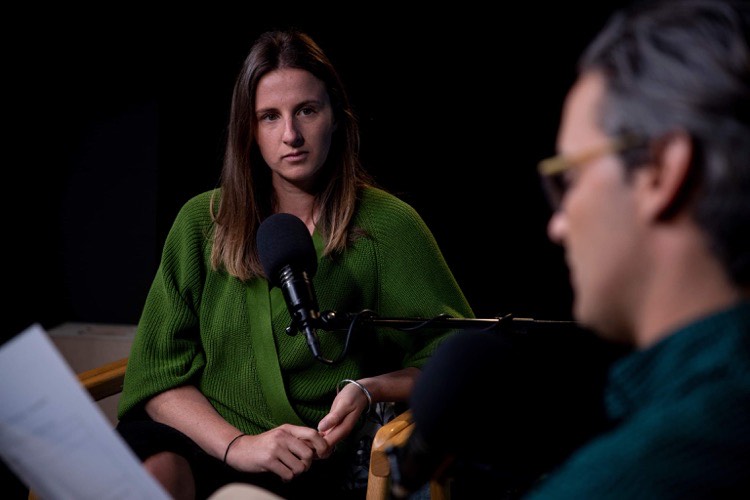Many brands and marketers know what they want to say. Few know how to say it. That’s where copywriters come in.
BY AMY TJASINK
‘Just Do It.’
‘Think Different.’
‘Because You’re Worth It.’
For consumers worldwide, these short lines instantly evoke iconic brand images. Though just three or four words long, they likely took weeks – if not months – for copywriters to develop, refine and launch.
And that’s the essence of copywriting – capturing a brand’s story and selling its products and services with only a handful of words. However, while all copywriting aims to drive sales, great copywriting does more: it establishes brands as universal icons and builds loyal communities.
So, how can you become one of the creative minds behind some of the world’s most memorable taglines, slogans and ad campaigns? It takes skill, practice and a bit of specialised learning, but with enough determination and curiosity, it’s an art anyone can master.
What is copywriting, and why do brands need it?
Copywriting is the complex art and science of crafting persuasive, compelling text – known as ‘copy’ – to prompt a specific action from the reader. Depending on a brand’s objectives, this action can yield tangible results, such as increased sales, website traffic or online impressions. Alternatively, the goal can be more abstract, such as boosting brand awareness or enhancing customer loyalty.
Copy can take many forms across multiple channels, from bold, striking billboard headlines to scripts for TV and radio ads. In digital spaces, copywriting shifts towards social media captions, video descriptions, website text and much more. Wherever words are used in advertising or marketing, copywriting is at play.
Across all channels, both traditional and modern, copywriters collaborate with other creatives to generate clear, cohesive concepts that unify entire campaigns under a single message. Iconic brand campaigns like Snickers’ ‘You’re Not You When You’re Hungry’ and Dove’s ‘Real Beauty’ were developed and communicated by creative teams that included copywriters.
Considering how desensitised the modern consumer is to branding communications, it’s clear why good copywriting is so vital to businesses. Even the most seasoned entrepreneurs and marketing loyalists, who know their brands inside out, might struggle to articulate their message convincingly to the public.
A skilled copywriter creates clear, compelling messages that:
- evoke emotion
- distil complex product information
- influence buyer behaviour.
This messaging ultimately drives measurable marketing results.
While brand experts might know exactly what they want to tell their audience, copywriters help them find the perfect words and phrasing to deliver their message effectively.
The ever-changing profession of copywriting
Any Mad Men fan will know that copywriting looked vastly different thirty or forty years ago from how it looks today. While radio, TV and print mediums were once the backbone of advertising, most of today’s marketing happens on our screens.
From influencer partnerships and YouTube ads to podcast sponsorships, web banners, search ads and emailers, brands have infiltrated every corner of online spaces, fiercely competing for consumer attention. The relationship between brands and their audiences has never been more intimate and demanding.
The role of the copywriter has, therefore, shifted considerably. Online advertising channels have made brands ubiquitous, challenging modern copywriters to craft messages across a multitude of platforms, each with its own best practices. The increased amount of data available allows brands to target their messages more precisely than ever.
At the same time, consumers have changed. They are now significantly more resistant to persuasion, more selective with their time and attention and more sceptical of the claims businesses make about their products, services and global impact.
The copywriter’s skill set is continuously evolving to meet changing business needs and practices.
How can you become a copywriter?
There are many avenues through which the necessary skills to become a great copywriter can be obtained. While no formal qualification is required, a background in marketing can certainly help you gain contextual knowledge of the advertising industry and overall business strategy.
The good news is that anyone with a keen interest in writing can learn the art of copywriting. While this profession demands strategic thinking, conceptual capabilities and an understanding of digital marketing and storytelling techniques, these are all skills that can be taught.
The Writers College Copywriting Course can equip you with the niche knowledge and real-world experience required to craft expert copy, develop robust campaign concepts and market yourself to agencies and businesses – all at your own pace and under the guidance of experienced industry tutors.
Browse the course today to learn more about the tutors, curriculum and enrolment process.
About the Author

Amy Tjasink is a seasoned, award-winning copywriter and digital marketer with over four years of experience at prestigious advertising agencies, including M&C Saatchi Abel, Saatchi & Saatchi and Publicis Groupe. Her career highlights include crafting award-winning campaigns, launching successful digital and social media initiatives for globally recognised clients and developing engaging B2B and B2C content with a sharp focus on slick, concise and skilfully written copy.
With her considerable industry experience and a BA degree in Creative Brand Communications under her belt, she hopes to guide and impact up-and-coming writers with enthusiasm for the versatile craft of copywriting.
Amy currently tutors the Copywriting Course at the Writers College.














